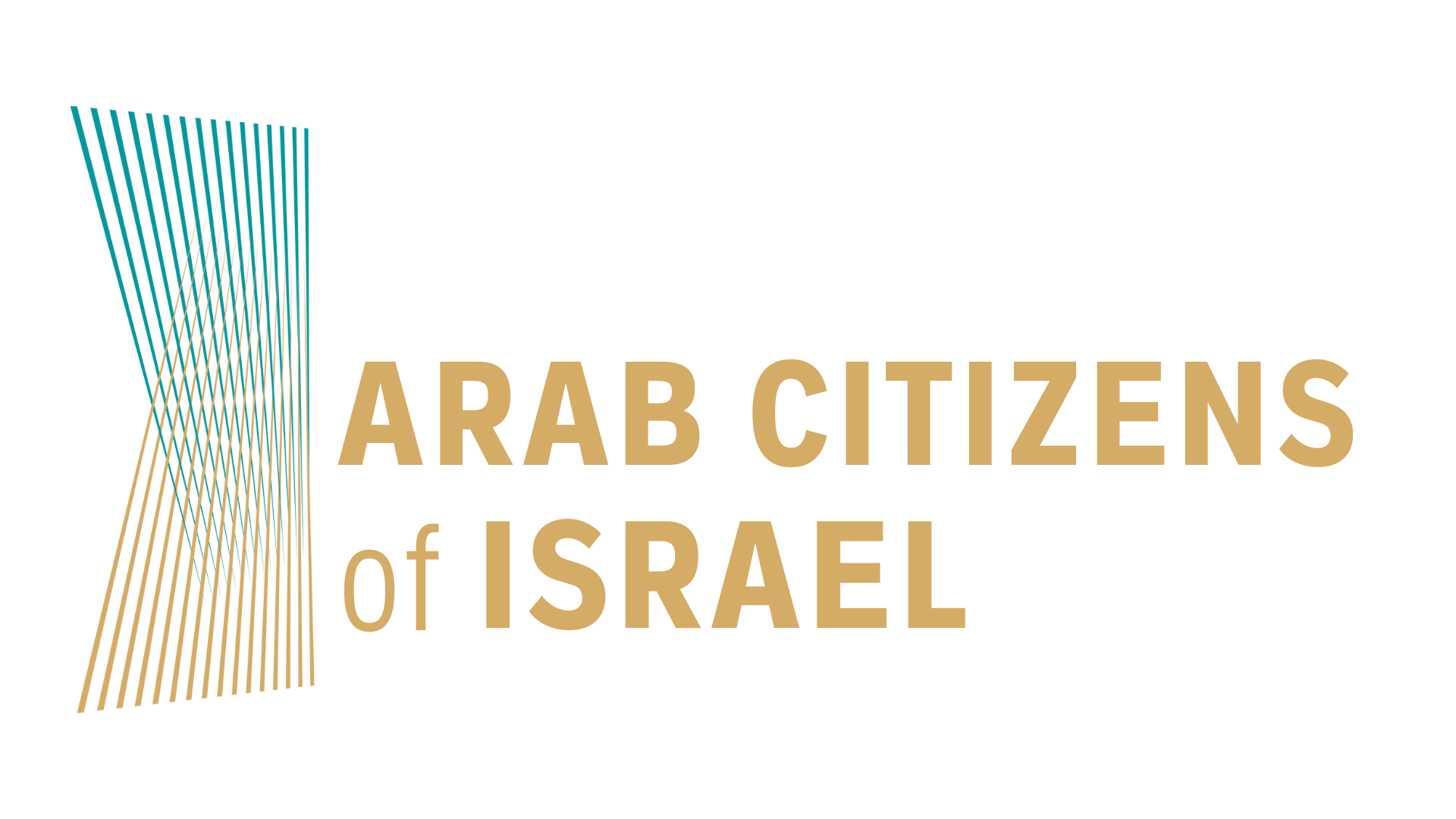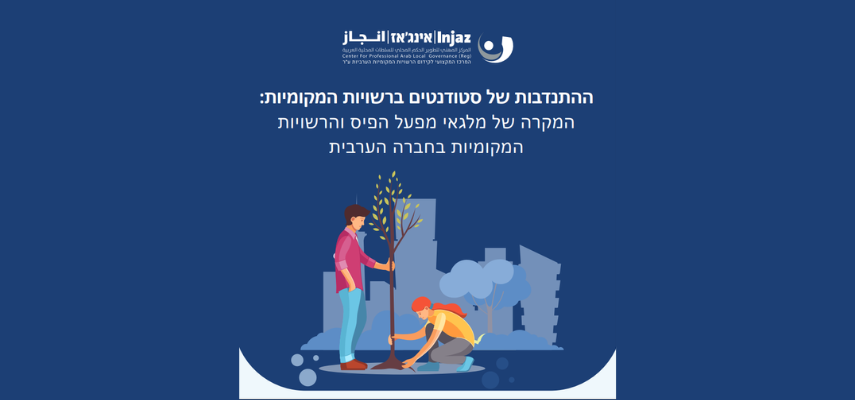Research on Student Volunteering in Arab Local Authorities
Mifal HaPais, a public organization that runs lotteries and reward programs to fund social and cultural projects across Israel, operates a scholarship program for students in collaboration with local authorities. Under this program, students receive a 10,000 ILS annual scholarship, jointly funded by Mifal HaPais and the local authority. In return, recipients must complete 140 hours of volunteer work within their communities. In the 2022–2023 academic year alone, Mifal HaPais awarded approximately 36,000 scholarships, demonstrating the program’s widespread impact
A recent study conducted by the Injaz Center for Professional Arab Local Governance with Mifal HaPais examined the impact of Arab scholarship recipients’ volunteer work on local welfare, education, and economic ecosystems in Umm al-Fahm, Arara, Yafia, Shefar’am and Majd Al-Krum. Based on data from 2019–2021, the study explores how student volunteering contributes to community resilience and economic growth.
Advantages for Students and Local Authorities
The research underscores the important role of student volunteers in Arab municipalities, many of which face financial and organizational challenges in meeting the needs of their populations. With the number of Arab students in higher education more than doubling over the past decade—from 25,951 in 2010 to 57,522 in 2021—local authorities increasingly rely on Mifal HaPais scholarship recipients to help fill gaps in essential services, particularly in education and welfare. Volunteers have also contributed to the creation of formal volunteer management systems in some municipalities, helping address staffing shortages.
Findings show that the Mifal HaPais scholarship program plays a crucial role in helping local authorities address service gaps, strengthen intergenerational ties, and foster social cohesion. By engaging with local needs, students develop a deeper sense of civic responsibility, with many continuing to volunteer beyond their required hours. A significant portion of this volunteer work occurs in the education system, where students mentor younger generations, alleviate teacher shortages, and encourage youth to pursue higher education and quality employment opportunities.
Volunteering also offers broader benefits, particularly in times of crisis, such as the COVID-19 pandemic. It builds social capital, strengthens local commitment, and provides volunteers with essential skills like consistency, leadership, and community engagement. For Arab students, it serves as valuable professional experience, boosting their résumés and positioning them as role models for their communities.
One survey responder shares: “Through the volunteer framework, scholarship recipients are exposed to people they haven’t met before, getting to know individuals from all the families and neighborhoods in the community, and building social connections with them. These connections and relationships are crucial, especially against the backdrop of the social-cultural reality we live in as an Arab society, which suffers from many challenges, including incidents of violence, crime, tensions, and severe divisions that are difficult to bear.”
Main Challenges
A number of challenges continue to impact volunteer efforts. Many volunteer programs lack adequate training, monitoring, and support mechanisms. Students’ work and study commitments outside their municipalities can also limit their availability, making them an underutilized resource. The high number of hours required from volunteers also presents a barrier, as it may be difficult for many to balance these commitments with their personal and professional responsibilities.
Moreover, there is a lack of a collaborative working culture within municipalities, which hinders effective coordination and the long-term sustainability of volunteer efforts. Additionally, political considerations sometimes influence scholarship distribution, aligning volunteer opportunities with political interests rather than actual community needs.
Research Recommendations
Injaz has presented the findings in meetings with local authority leaders, volunteer coordinators, and the Mifal HaPais scholarship administration. Following the study, Injaz and Mifal HaPais are working to implement key recommendations, including strengthening volunteer management systems and improving municipal coordination.
In addition, Injaz runs a forum for youth unit directors, providing training on volunteer management, emergency preparedness, and tracking the Etgarim program for informal education under the Government Decision 550. These efforts aim to enhance municipalities’ capacity to engage volunteers effectively and ensure that student contributions translate into lasting community impact.
How Can We Help?
Do you need support integrating these resources and issues into your philanthropic, communal, or Israel education work? Reach out for consultations, connections to experts, program support, training, or to plan your next event or mission. If you’ve used our resources, tell us about your experience!

